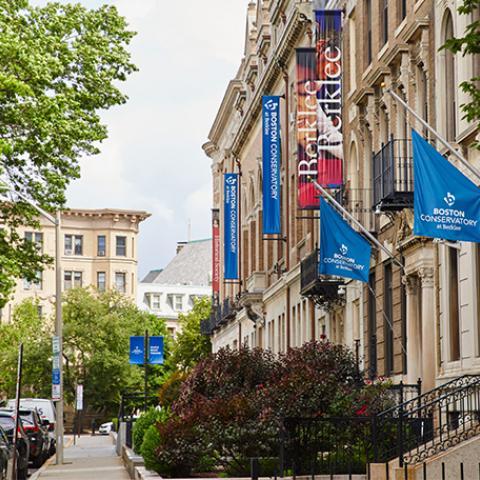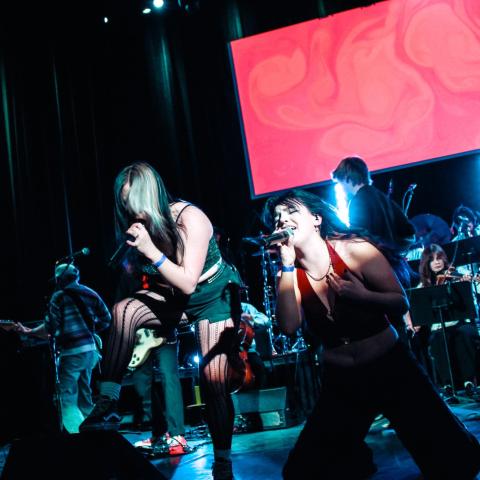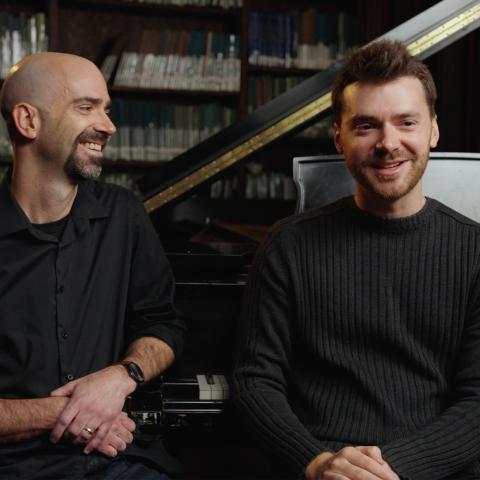Woodstock 50 Years Later: Examining the Mythology and the Music

In celebration of Woodstock's 50th anniversary, Berklee presents a week of events culminating in Woodstock 50: Then and Now, an international symposium featuring concerts, clinics, exhibits, films, and speakers, April 1–7. Registration is free but encouraged, and is required for attendance at some events.
“Woodstock was, without a doubt, one of the most iconic musical events in America, and one that intersected with transformational social, political, and cultural movements,” said Simone Pilon, chair of Berklee's Liberal Arts Department and symposium co-organizer. “Reflecting on this festival allows us to see how it has shaped today's music as well as our values.”
The opening celebration on Friday, April 5, features Henry Diltz, one of America’s most noted photographers. Diltz not only documented Woodstock, but also the Laurel Canyon scene from the mid-1960s. His vast catalog of photographs is essential to comprehending the significance of one of rock music’s most creative and colorful eras. A student ensemble will perform music from this period.
Saturday, April 6, will feature a variety of topics, from Woodstock's influence to the political successes and failures of that time. A roundtable discussion will include Michael Lang, Woodstock cofounder; Chip Monck, the festival's master of ceremonies and stage and lighting designer; Rona Elliot, community and public relations manager; and photographers Elliott Landy and Diltz. Lang produced the Woodstock festivals in 1994 and 1999, and is planning the Woodstock 50th Anniversary Festival in August 2019. A special sneak peek at an exclusive excerpt from Woodstock: Three Days That Defined a Generation will provide guests with a look at the forthcoming documentary from American Experience.
The event concludes on Sunday, April 7, with a session on Jimi Hendrix, a performance of music by Berklee’s Jimi Hendrix Ensemble, and reflections from Gerardo Velez, who performed with Hendrix at Woodstock and later formed the group Spyro Gyra. A keynote by Patrick Burke, associate professor of music at Washington University in St. Louis, will examine the relationship between rock music and the radical political movements of the late 1960s. Burke is the author of Come in and Hear the Truth: Jazz and Race on 52nd Street and What's My Name? Rock, Race, and Revolution in the 1960s.
Woodstock 50: Then and Now is hosted by Berklee's Liberal Arts Department, in collaboration with the Professional Education Division.




